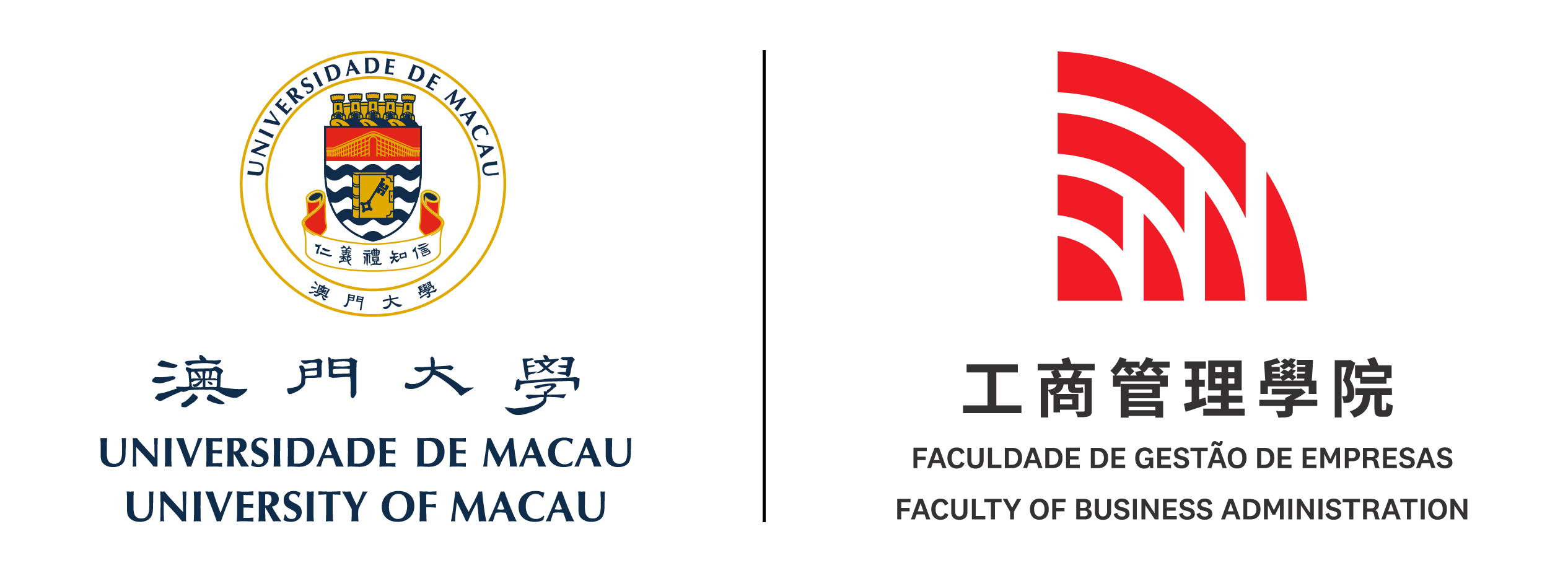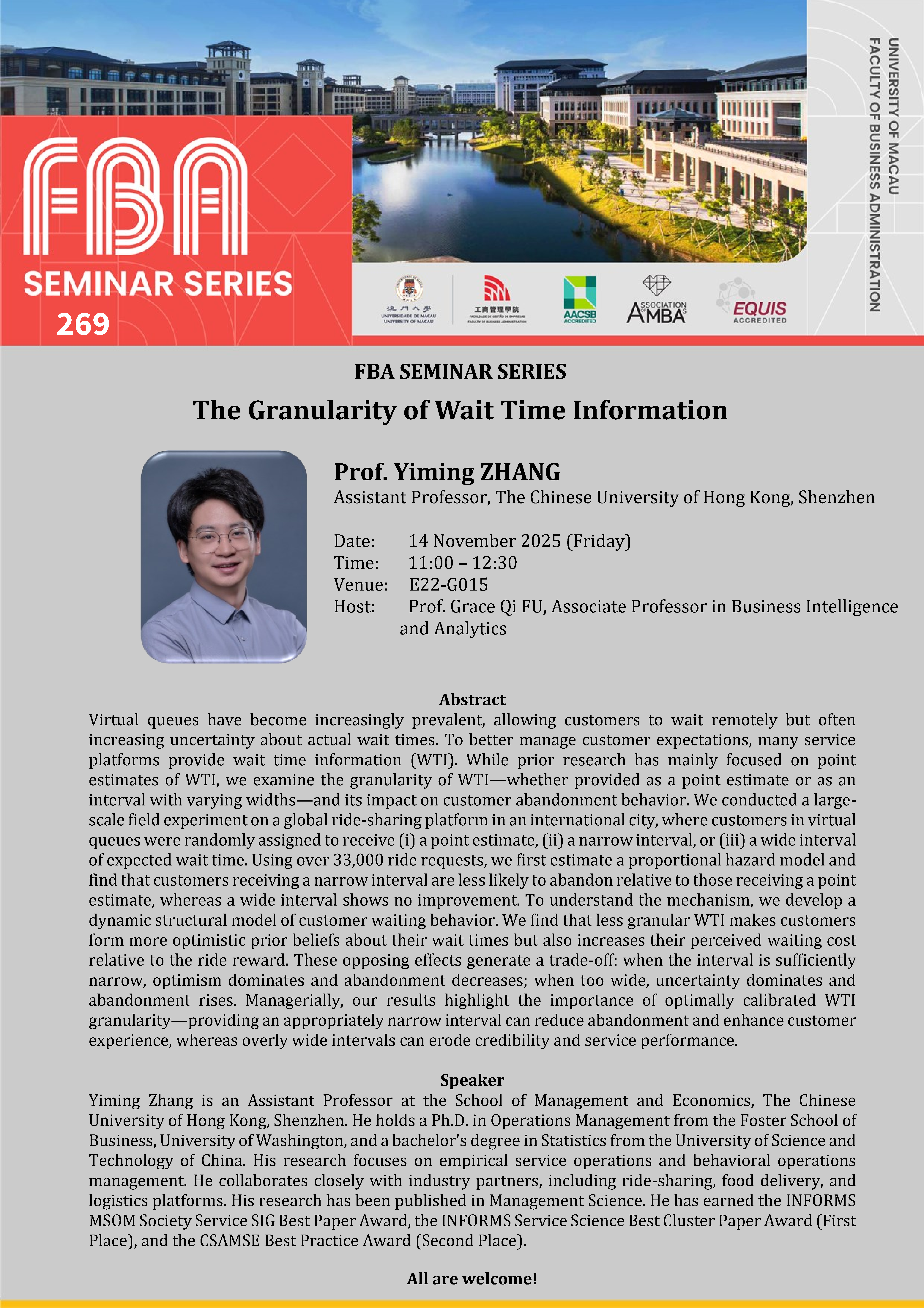The Granularity of Wait Time Information
Prof. Yiming ZHANG
Assistant Professor, The Chinese University of Hong Kong, Shenzhen
Date: 14 November 2025 (Friday)
Time: 11:00-12:30
Venue: E22-G015
Host: Prof. Grace Qi FU, Associate Professor in Business Intelligence and Analytics
Abstract
Virtual queues have become increasingly prevalent, allowing customers to wait remotely but often increasing uncertainty about actual wait times. To better manage customer expectations, many service platforms provide wait time information (WTI). While prior research has mainly focused on point estimates of WTI, we examine the granularity of WTI—whether provided as a point estimate or as an interval with varying widths—and its impact on customer abandonment behavior. We conducted a large-scale field experiment on a global ride-sharing platform in an international city, where customers in virtual queues were randomly assigned to receive (i) a point estimate, (ii) a narrow interval, or (iii) a wide interval of expected wait time. Using over 33,000 ride requests, we first estimate a proportional hazard model and find that customers receiving a narrow interval are less likely to abandon relative to those receiving a point estimate, whereas a wide interval shows no improvement. To understand the mechanism, we develop a dynamic structural model of customer waiting behavior. We find that less granular WTI makes customers form more optimistic prior beliefs about their wait times but also increases their perceived waiting cost relative to the ride reward. These opposing effects generate a trade-off: when the interval is sufficiently narrow, optimism dominates and abandonment decreases; when too wide, uncertainty dominates and abandonment rises. Managerially, our results highlight the importance of optimally calibrated WTI granularity—providing an appropriately narrow interval can reduce abandonment and enhance customer experience, whereas overly wide intervals can erode credibility and service performance.
Speaker
Yiming Zhang is an Assistant Professor at the School of Management and Economics, The Chinese University of Hong Kong, Shenzhen. He holds a Ph.D. in Operations Management from the Foster School of Business, University of Washington, and a bachelor’s degree in Statistics from the University of Science and Technology of China. His research focuses on empirical service operations and behavioral operations management. He collaborates closely with industry partners, including ride-sharing, food delivery, and logistics platforms. His research has been published in Management Science. He has earned the INFORMS MSOM Society Service SIG Best Paper Award, the INFORMS Service Science Best Cluster Paper Award (First Place), and the CSAMSE Best Practice Award (Second Place).
All are welcome!


